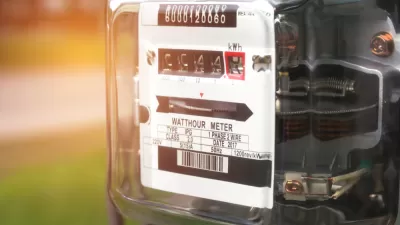It was considered a given by many analysts that global oil prices would only increase as world oil demand outstripped supply, so switching to percentage-based fuel taxes from per-gallon taxes made sense, until OPEC chose not to restrict their output.
It is not without irony that we look back at the Kentucky gas tax model, "Indexing Gas Taxes: Kentucky Shows How," that we touted in June, 2013. While other state governors and legislatures were struggling to raise gas taxes (sound familiar?), Kentucky's indexed gas tax, which was 29.9-cents per gallon, required a 2.4-cents increase effective July 1; no debate required.
What the law giveth, the law taketh away. Tom Loftus of The Courier-Journal writes, "Kentucky's gasoline tax rate — which fell by 4.3 cents per gallon on Jan. 1 — is now expected drop by another 5.1 cents on April 1 unless legislators change state law in the current legislative session."
Kentucky's gas tax is an excise tax, that is, it is not a percentage-based sales tax. However, its largest component is based on "9 percent of the average wholesale price (of gasoline)," as we noted earlier, adjusted every three months.
Under current law, "there is a statutory floor governing how far (the gas tax) can fall — roughly 22.5 cents," wrote Ronnie Ellis in The Independent in June, 2013 about the forthcoming gas tax increase to 32.3 cents per gallon.
To prevent the gas tax from reaching the floor, State Sen. Ernie Harris (R-Crestwood) and chairman of the Senate Transportation Committee, has authored Senate Bill 29 that "would simply freeze Kentucky's gas tax at the rate it is today — 27.6 cents per gallon, and thereby avoiding the 5.1 cent per gallon reduction anticipated on April 1," writes Loftus.
"With the rate dropping from roughly 32 to 22 cents, we could lose nearly a third of the revenue from the Road Fund's major revenue source. So the impact is obvious," said Harris.
An alternative approach would be to increase the statutory floor of the gas tax. Two proposals, one from Gov. Steve Beshear, the other from Senate President Robert Stivers, R-Manchester, did just that. Both were rejected because they were higher than 27.6 cents and were thus seen as gas tax increases.
The more obvious gas tax decreases based on falling gas prices will be evident in states that "have either added wholesale percentage gas taxes to their fixed, per-gallon tax rates or replaced their fixed taxes with upstream wholesale levies," according to AASHTO Journal. Take North Carolina, for example.
Although North Carolina's fuel tax increased slightly Jan. 1, the state DOT estimates based on current price trends that it could stand to lose $300 million or 10 percent of its revenue stream in the fiscal year starting July 1. Transportation Secretary Anthony Tata told AASHTO Journal, "We're talking to the legislature about a lot of things with regard to transportation funding."
The unexpected drop in gas prices shows why states should think twice before reducing or eliminating gas excise taxes when considering percentage-based sales taxes on motor fuels, be they wholesale or retail, as initially proposed by Republican Governor Rick Snyder of Michigan. Best to simply add them, such as proposed this month by Democratic Governor Mark Dayton of Minnesota.
Hat tip to AASHTO Journal.
FULL STORY: State gas tax might drop over a nickel April 1

Maui's Vacation Rental Debate Turns Ugly
Verbal attacks, misinformation campaigns and fistfights plague a high-stakes debate to convert thousands of vacation rentals into long-term housing.

Planetizen Federal Action Tracker
A weekly monitor of how Trump’s orders and actions are impacting planners and planning in America.

San Francisco Suspends Traffic Calming Amidst Record Deaths
Citing “a challenging fiscal landscape,” the city will cease the program on the heels of 42 traffic deaths, including 24 pedestrians.

Defunct Pittsburgh Power Plant to Become Residential Tower
A decommissioned steam heat plant will be redeveloped into almost 100 affordable housing units.

Trump Prompts Restructuring of Transportation Research Board in “Unprecedented Overreach”
The TRB has eliminated more than half of its committees including those focused on climate, equity, and cities.

Amtrak Rolls Out New Orleans to Alabama “Mardi Gras” Train
The new service will operate morning and evening departures between Mobile and New Orleans.
Urban Design for Planners 1: Software Tools
This six-course series explores essential urban design concepts using open source software and equips planners with the tools they need to participate fully in the urban design process.
Planning for Universal Design
Learn the tools for implementing Universal Design in planning regulations.
Heyer Gruel & Associates PA
JM Goldson LLC
Custer County Colorado
City of Camden Redevelopment Agency
City of Astoria
Transportation Research & Education Center (TREC) at Portland State University
Jefferson Parish Government
Camden Redevelopment Agency
City of Claremont




























